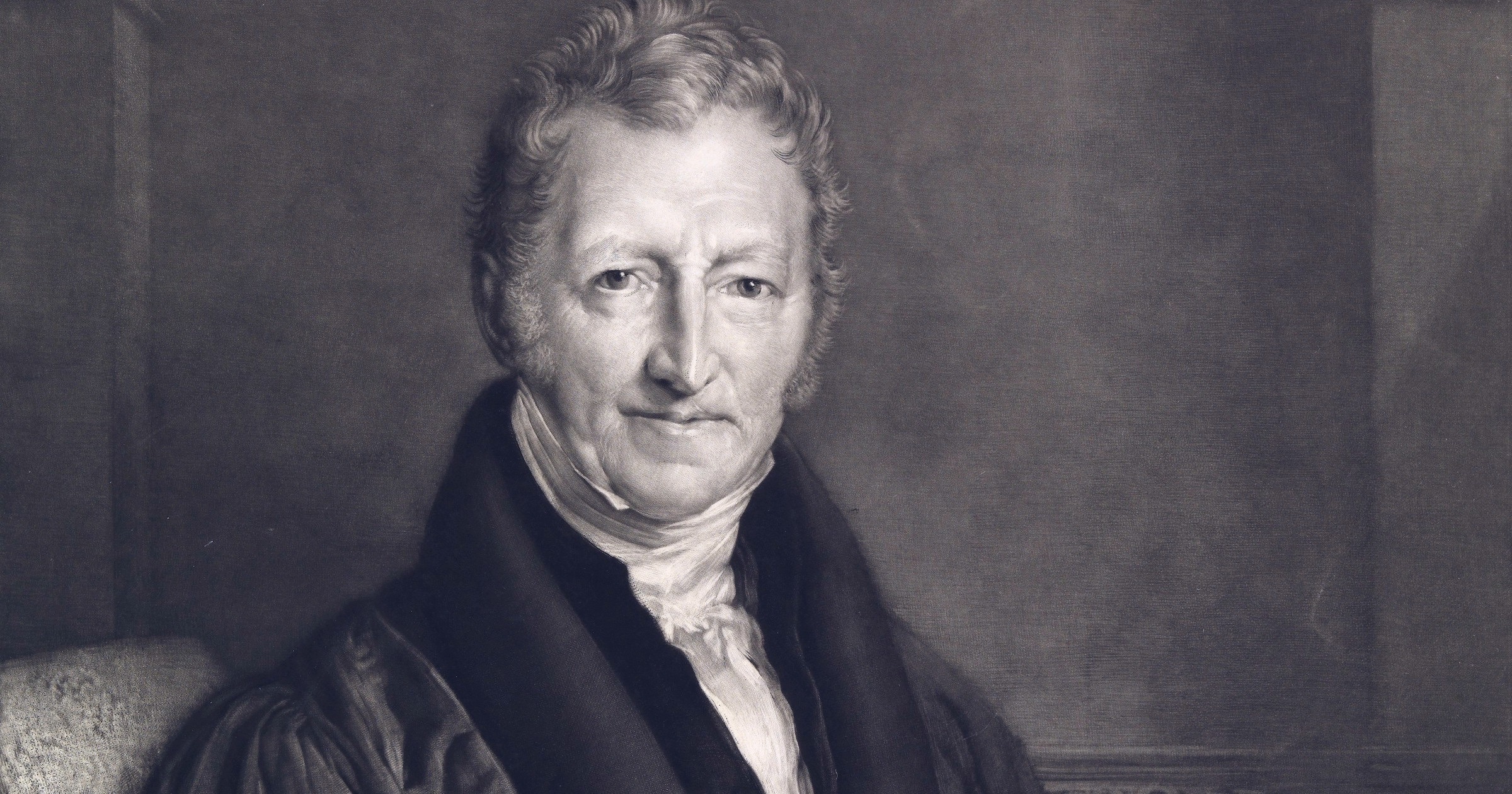 Evolution
Evolution
 Life Sciences
Life Sciences
Myth-Making and Malthus

Editor’s note: We are delighted to present a series by Neil Thomas, Reader Emeritus at the University of Durham, “Natural Selection: Discovery or Invention?” Find the full series here. Professor Thomas’s recent book is Taking Leave of Darwin: A Longtime Agnostic Discovers the Case for Design (Discovery Institute Press).
The intellectual journey towards the idea of the evolution of species made by Erasmus Darwin’s famous grandson was clearly not one of straight inductive inference (“working on Baconian principles,” as Charles liked to claim). And this is for the very good reason that his conclusions had not been made manifest in patiently collected data from fieldwork of his own. Darwin’s later descriptions of his theory as having been a response to hard facts papered over the extent to which he had been indebted to the theoretical structures of various others. If anything, Darwin’s method was to pick up opinions from elsewhere and then search for ways of backing up those opinions by observations made in the field (rather than the other way around). In that sense it might be more accurate to borrow a term used by anthropologists and classicists to describe Darwin’s modus operandi: mythopoeisis (myth-creation/creative confabulation), that which Michael Denton referred to as the weaving together of a great cosmogenic myth1 and to which Bonfire of the Vanities author Tom Wolfe referred somewhat archly as cosmogonism (which Wolfe defined as a fruitless search for a Grand Theory of Everything).2
Survival of the Fittest
This bit-by-bit manner of working can be observed to continue when we come to what Darwin claimed to be that other major influence on his thinking, the work of the political scientist and demographer, Thomas Malthus, author of the famed (or ill-famed) Essay on the Principle of Population3 (satirized in Charles Dickens’s figure of Scrooge with his manic obsession with overpopulation). One of Malthus’s major themes concerned competition between humans for scarce resources to survive, that which Herbert Spencer was later to lexicalize as the battle for the survival of the fittest. After reading Malthus out of personal interest, it dawned on Darwin how he might usefully appropriate the Malthusian analogy, redirecting Malthus’s ideas about laissez-faire capitalist societies to the struggle for existence in the wider biological world.4
Darwin as Magpie
After reading Malthus, everything seemed to click into place for Darwin. Like a magpie building its nest, Darwin could see that he could, in a purely additive way, annex older evolutionary ideas to his present ensemble of ideas on evolution to “complete the picture.” With the acquisitive instincts of a born specimen collector, Darwin must have felt that with Malthus he had netted the final idea to squirrel away into his kit-box of ideas which, cumulatively, were to issue into his proclamation of what he termed, a trifle disingenuously, “my theory.” The newer Malthusian ideas will have dovetailed rather satisfactorily with ideas he had already picked up from grandfather Erasmus and from other less formal sources. Voilà!
Or as Victorian historian Kathryn Hughes recently put it in perceptibly ironic tones, after picking up animal-rearing tips inter alia from his barber (William Willis) and ideas of competition for scarce resources from Malthus, “the happy coincidence of a chatty hairdresser, a roiling populace and a forty-year old economic treatise had given Darwin the key to unlocking his theory of natural selection.”5 Darwin’s journey of questing imagination cum cerebration had now reached a successful conclusion.
Next, “Darwinian Theory: Science or Speculative Philosophy?”
Notes
- Michael Denton, Evolution: A Theory in Crisis (Bethesda, Maryland, Adler and Adler, 1986).
- Tom Wolfe, The Kingdom of Speech (London; Jonathan Cape, 2016).
- Thomas Malthus, An Essay on the Principle of Human Population, edited by Anthony Flew (London: Penguin, 1970).
- Using that analogy, he concluded that “favourable variations would tend to be preserved, and unfavourable ones to be destroyed. The results of this would be the formation of a new species. Here, then, I had at last got a theory by which to work […] I saw, on reading Malthus on population, that natural selection was the inevitable result of the rapid increase of all organic beings […Malthus] gave me the long-sought clue to the effective agent in the evolution of organic species.” Cited by Antony Flew, Essay on the Principle of Population, Introduction, pp. 49-50.
- Kathryn Hughes, Victorians Undone: Tales of the Flesh in an Age of Decorum (London: Fourth Estate, 2018), p. 99.
